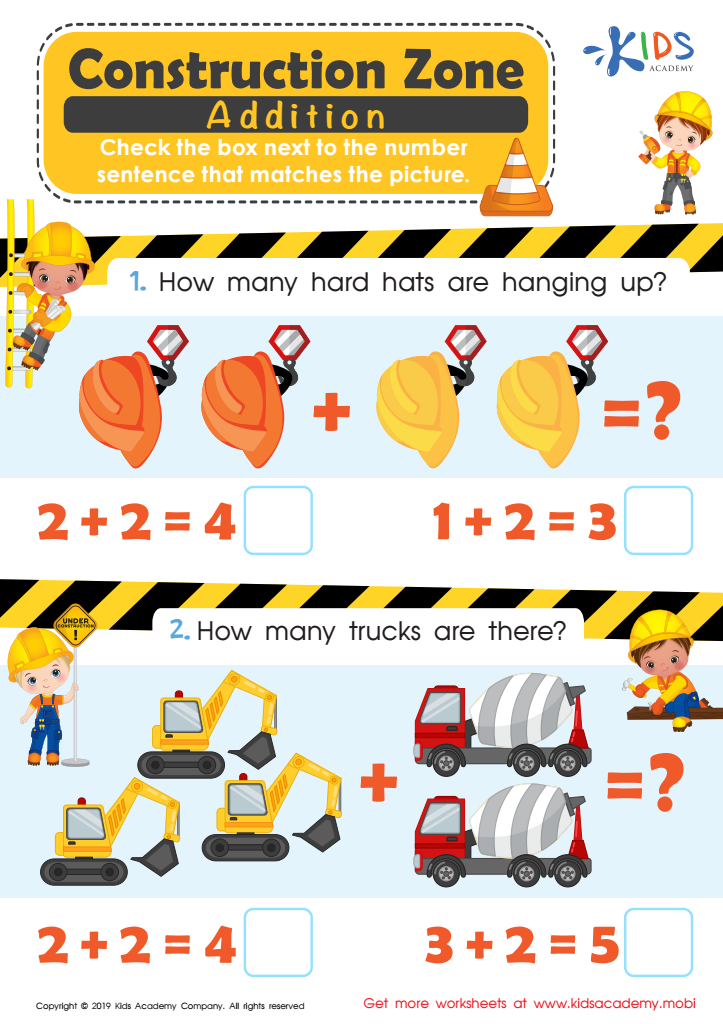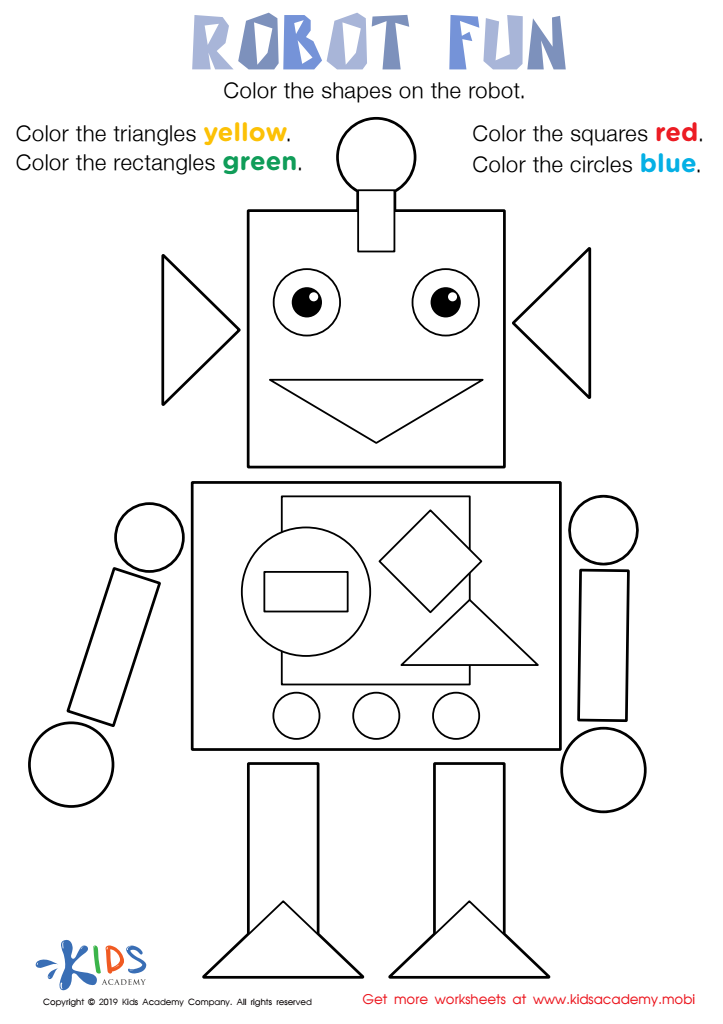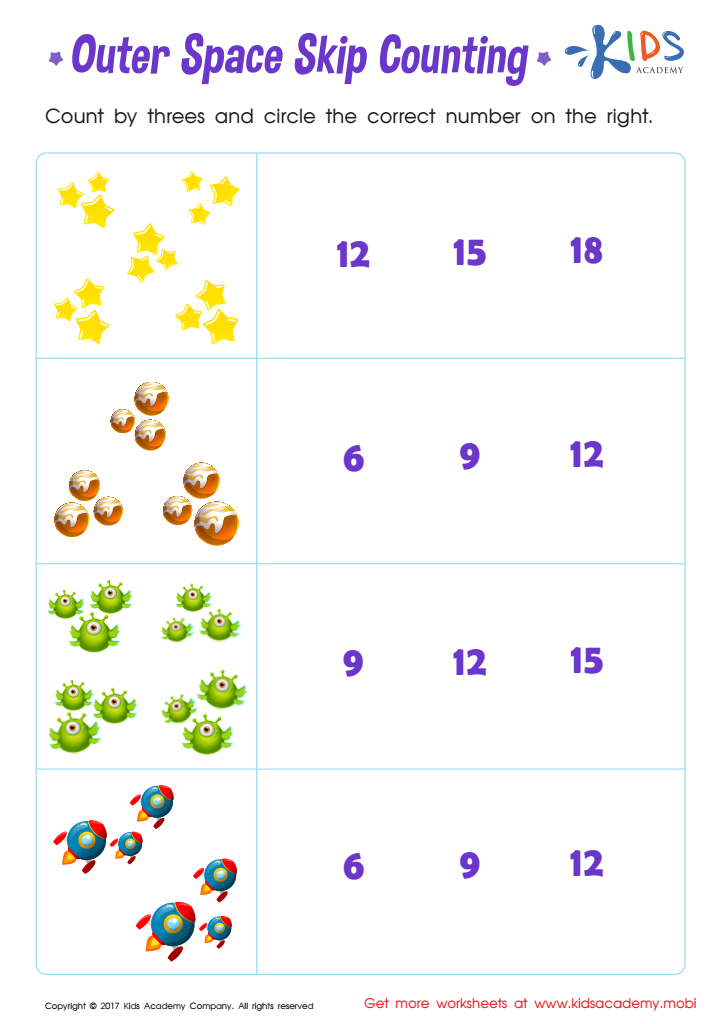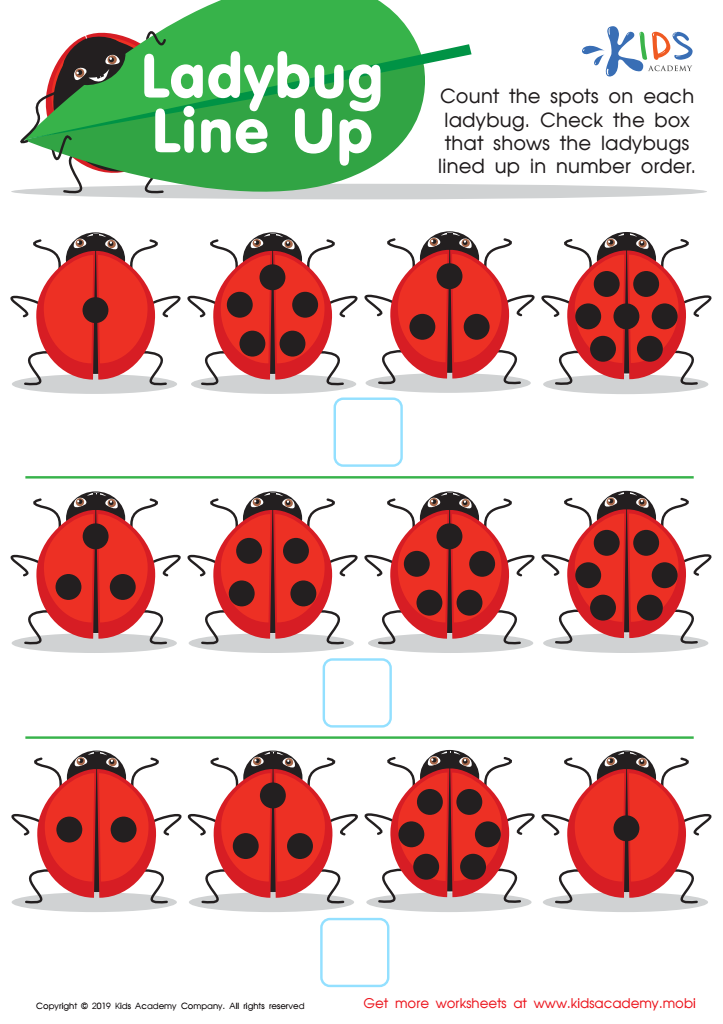Improving concentration Easy Math Worksheets for Ages 5-8
4 filtered results
-
From - To
Enhance your child's focus and math skills with our collection of "Improving Concentration Easy Math Worksheets" specially designed for ages 5-8. These engaging worksheets provide fun, interactive exercises that promote concentration while helping young learners master essential math concepts. Each activity encourages children to think critically, follow directions, and apply their knowledge in various scenarios. Perfect for reinforcing classroom learning or enriching home study, these worksheets make math enjoyable and accessible. Watch your child’s confidence grow as they improve their concentration and problem-solving abilities, paving the way for a solid foundation in mathematics. Download your worksheet today and spark the joy of learning!


Construction Zone Addition Worksheet


Robot Fun Worksheet


Skip Counting by 3s: Outer Space Skip Counting Printable


Ladybug Line Up Worksheet
Improving concentration in math for children aged 5-8 is vital for several reasons. First, this age group is undergoing crucial cognitive development, and bolstering their ability to focus can enhance their overall learning skills. Children who can concentrate are more likely to understand math concepts, leading to better academic performance and confidence in their abilities.
Second, math serves as a foundational skill for many future subjects. A strong grasp of easy math concepts sets the stage for more complex problem-solving later on. Concentration helps children tackle these tasks more efficiently and reduces frustration, fostering a positive attitude towards learning.
Moreover, enhancing concentration can improve children's social skills. Group activities and collaborative math tasks require attention and engagement with peers, encouraging communication and teamwork. By improving their focus, children become more active participants in their learning environment.
Lastly, attention-building activities in early math education lay the groundwork for lifelong skills. In an increasingly distracted world, teaching children how to concentrate not only aids their education but also prepares them for future challenges. Both parents and teachers should prioritize these skills to cultivate an environment where children can thrive academically and socially.
 Assign to My Students
Assign to My Students




.jpg)















